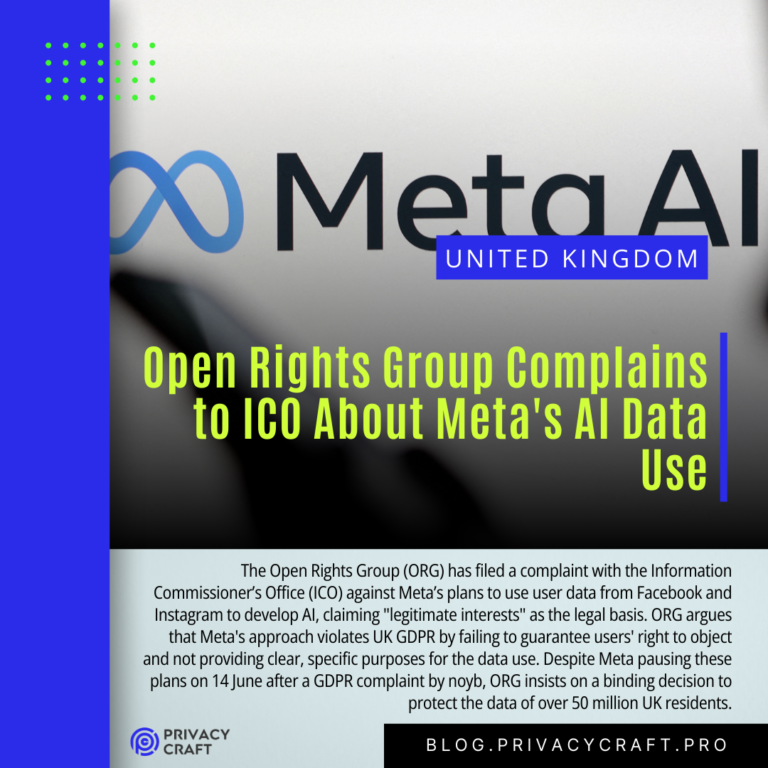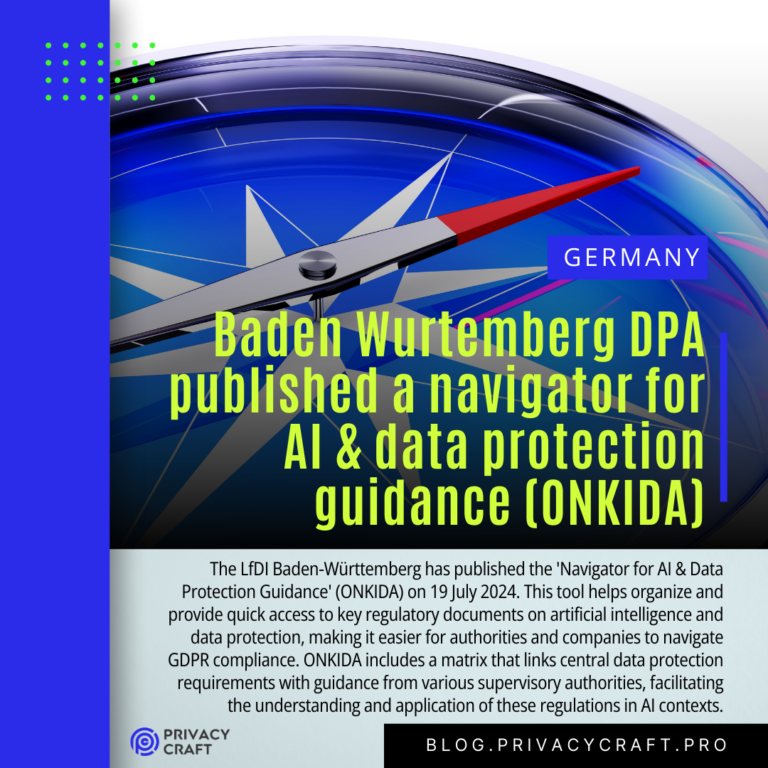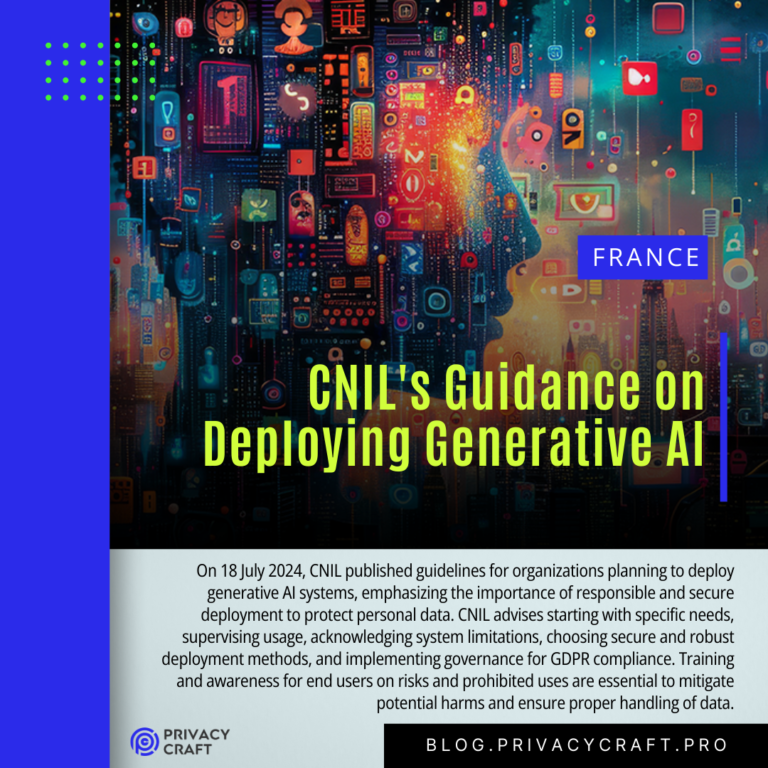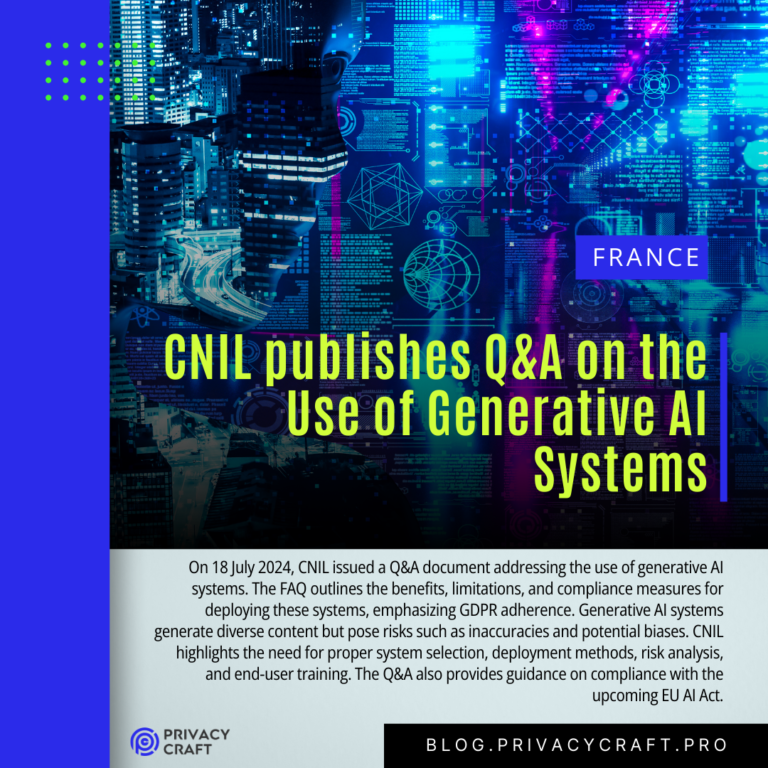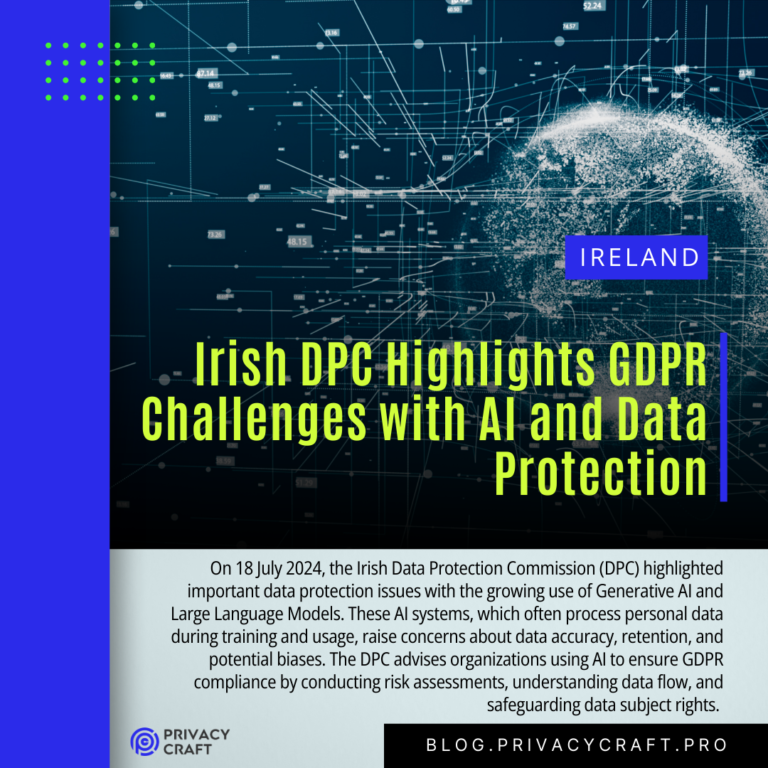Open Rights Group Complains to ICO About Meta’s AI Data Use
The Open Rights Group (ORG) has filed a complaint with the Information Commissioner’s Office (ICO) against Meta’s plans to use user data from Facebook and Instagram to develop AI, claiming “legitimate interests” as the legal basis. ORG argues that Meta’s approach violates UK GDPR by failing to guarantee users’ right to object and not providing clear, specific purposes for the data use. Despite Meta pausing these plans on 14 June after a GDPR complaint by noyb, ORG insists on a binding decision to protect the data of over 50 million UK residents.
Open Rights Group Complains to ICO About Meta’s AI Data Use Read More »
